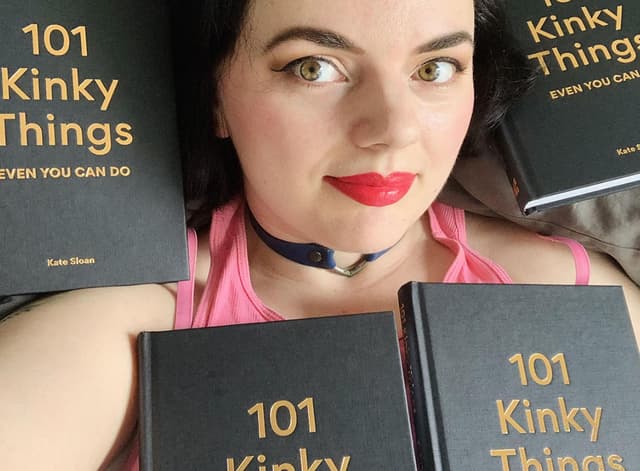Podcast

Kate Sloan's Collection of Kinky Things
October 18, 2021
Sex writer and podcaster Kate Sloan has just added “author” to her already-impressive resume. Her new book, 101 Kinky Things Even You Can Do, is both a guide to getting creative with kink, and an ode to an essential aspect of her identity.